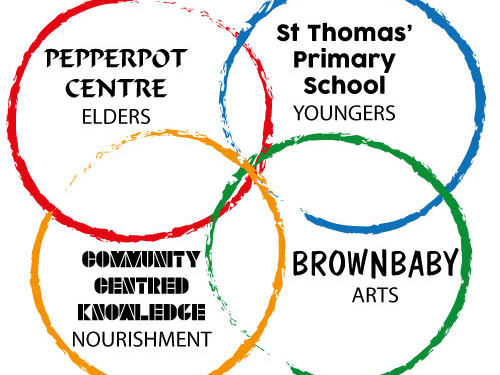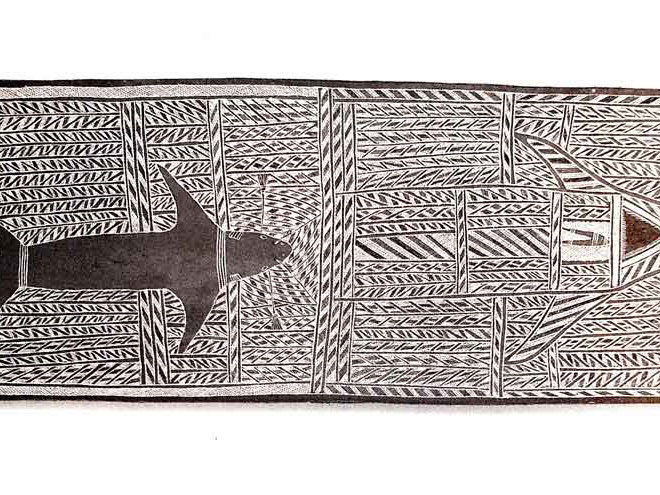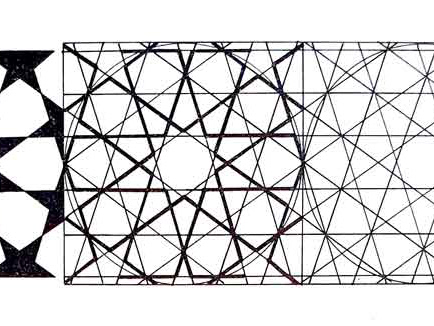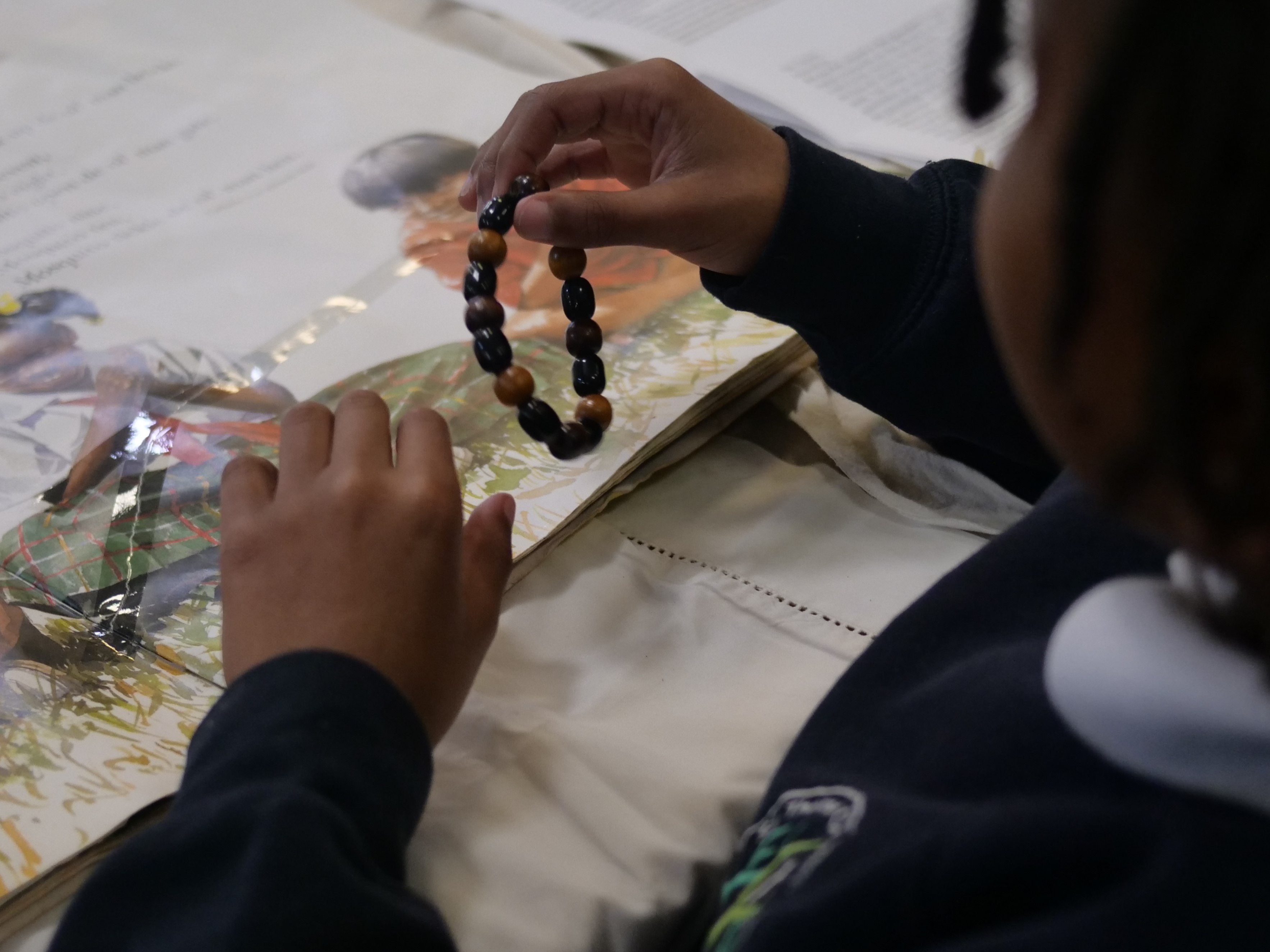All Humans evolved within complex, land-based cultures over deep time to develop a brain with the capacity for over 100 trillion neural connections, in which we now use only a tiny fraction. Most of us have been displaced from those cultures of Origin, global diaspora of refugees severed not only from land but from the sheer Genius that comes from belonging in symbiotic relation to it. In aboriginal Australia, elders tell her stories, ancient narratives to show us that if you don't move with the land, the land will move you. There is nothing permanent about settlements and the civilisations that form them. Maybe the reason all the powerful instruments pointed at the sky have not yet been able to detect high-tech alien civilisations is that these unsustainable societies don't last long enough to leave a cosmic trace. An unsettling thought.
Perhaps we need to revisit the brilliant fourth part of our palaeolithic ancestors and recover enough cognitive function to correct The Impossible message civilisation has created, before the echidnas decide to sakis all and take over as the custodial species of This Planet.
The stories that define our thinking today describe an eternal Battle between Good and Evil springing from an originating act of sin. But these terms are just metaphors for something more difficult to explain, a relatively recent demand but simplicity and order be imposed upon the complexity of creation, a demand sprouting from an ancient seed of narcissism that has flourished due to a new imbalance in human societies.
There is a pattern to the universe and everything in it, and there are knowledge systems and traditions that follow this pattern to maintain balance, to keep the temptations of narcissism in check. But recent traditions have emerged that break down creation systems like a virus infecting complex patterns with artificial simplicity, exercising a civilising control over what some seat has chaos. The Sumerians started it. The Romans perfected it. The anglosphere inherited it. The world is now mired in it.
Tasmanian people have a particular connection to Rocks.
Stones to me or the object that parallel all life, more so than trees or mortal things because stones are almost immortal he says. They know things learnt over deep time. Stone represents Earth, tools, and spirit; it conveys meaning through it to use and through its resilience to the elements. At the same time it ages, cracking and eroding As Time wears it down, but it is still there filled with energy and Spirit.
We are on about the sentience of stones and the ancient Greek mistake of identifying Dead Matter as opposed to living matter, limiting for centuries to come the potential of Western thought when attempting to define things like consciousness and self-organizing Systems such as galaxies. Western thinkers Viewed space as lifeless and empty between stars; our own stories represented those dark areas as living country based on observed effect of Attraction from those places on celestial bodies. Theories of Dead Matter and empty space that's Western science came late to discoveries of what they now call dark matter, finding that those areas of dead and empty space actually contain most of the matter in the universe.
Max and I speak about how our knowledge of these things cannot have always being unique to our culture, as the ancient names for constellations are often the same as ours throughout the world. The Seven Sisters, the two brothers, the Eagle, The Hunter.
We think something terrible must have happened in the north to make people forget, causing science to have to start all over again from scratch rather than building on what went before.
In our law we know that rocks are sentient and contain spirit. You can't just pick one up and carry it home, as you will disturb its spirit and it will disturb you in 10. If you sit at any campfire for a yarn with aboriginal people anywhere on this continent, you will be sure to hear a cautionary tale about a relative who was silly enough to pick up a rock and take it home, who then got sick or was haunted or killed or went crazy. A lot of rocks are benevolent and enjoy being used and traded, but you have to follow the guidance of the old people to know which ones you can use. Rocks are to be respected.
I sit with two Sami women, indigenous people from near the North Pole who have a sacred totemic connection with the reindeer herds they still follow today across arctic landscapes they have inhabited for thousands of years. They remain connected to these lands, which after the moment claims by temporary modern States such as Finland, Sweden, Norway, and Russia.
When the yarn is over, I find that whiteness is no longer a useful term in my vocabulary. In my community we use the words black and white everyday as a convenient shorthand to describe relationships between the occupiers and the occupied, but those terms are horribly inadequate for describing a reality today, particularly in multicultural and international contexts.
In a world where black African colonists are annexing the traditional lands of fair skinned Namadi Hunters, where Celts struggle against English domination while backs in Spain and koreans in Russia fight to retain their ancient Lands and languages, where the People's are various skin tones have been making babies together for generations in every country, black and white is a limiting paradigm for understanding the indigenous experience.
The indigenous experience itself is hard to define as a distinct reality when the non indigenous Communities of the world have only relatively recently been displaced from their own ancestral territories of Origin, moved into large cities and towns to provide the labour that progress demands.
It is difficult to name the ripples and patterns of global power systems when we are limited by 19th century language around race and colonialism.




